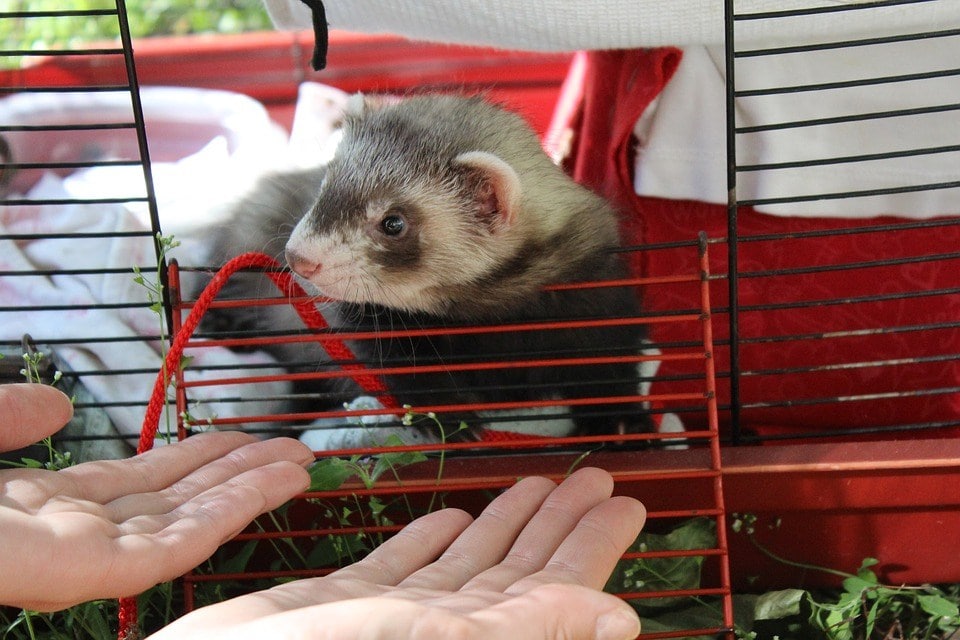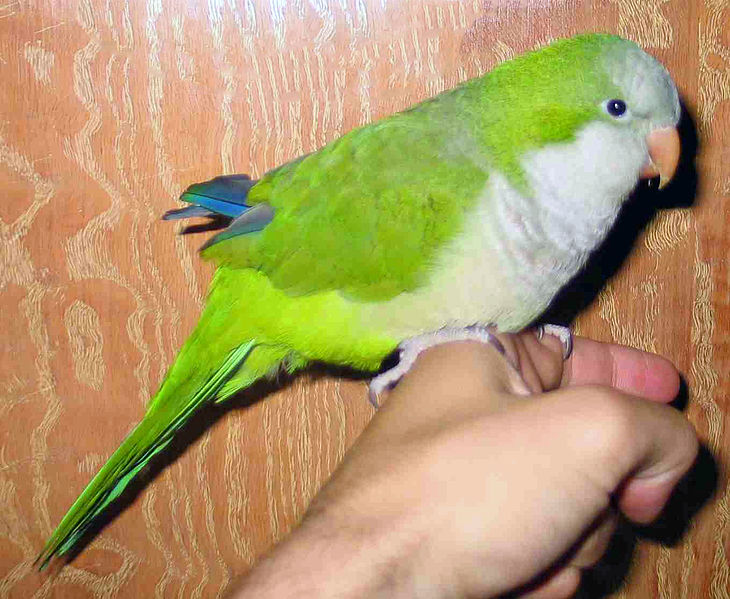VET APPROVED

The information is current and up-to-date in accordance with the latest veterinarian research.
Learn more »Ferrets can be a complicated topic. They’re illegal to own in a couple of states in the U.S. and have a bad reputation with some folks. Whether you love or loathe them, there’s a lot of misconceptions surrounding these tubes of fuzz. Here are 11 myths about ferrets you should stop believing.

The 11 Myths & Misconceptions About Ferrets
1. Myth: Ferrets can’t be trained
Fact: There’s a pervasive myth that ferrets are untrainable, but this couldn’t be further from the truth. These intelligent creatures can be litter trained, taught tricks, or taught to play with toys.

2. Myth: Ferrets will bite you
Fact: The hard truth is that many animals may bite you if they feel threatened, and ferrets are no exception. That doesn’t mean they’re ‘naturally bitey’ or mean — they aren’t! But if you aren’t respectful of them, they will use evolution’s methods to defend themselves.
3. Myth: Ferrets must be caged
Fact: Though it requires a lot of work, it is possible to have free-roaming ferrets like you would have a cat or dog. The tricky part is ferret-proofing your house. Ferrets can squeeze their bodies into tiny spaces, so an improperly-proofed place could prove deadly to a curious free-roaming ferret.
For those uninterested in ferret proofing, worry not! Supervised time out of their cage is imperative for your ferrets, even if they aren’t free-roaming!

4. Myth: Ferrets need to be fed fruits & vegetables
Fact: Many people believe that ferrets need to be fed fruits and vegetables, but the reality is that this can make them sick because their digestive system is not designed to process these types of foods. Ferrets are strict carnivores, even more so than cats. Some people say that they can be given as treats, but the American Ferret Association advises against feeding any fruits or vegetables.
5. Myth: Ferrets are wild animals
Fact: There is also a prevalent misconception that ferrets are just tamed wild animals. However, the ferrets you get from breeders and pet stores are fully domesticated, captive-bred creatures, not wild animals. Humans have been domesticating ferrets for over 2,000 years. Today’s pet ferrets are fully domesticated and have been selectively bred for generations. The domestic ferret’s wild relative, the black footed ferret, is actually extremely endangered, and it is illegal to interfere with them.

6. Myth: Ferrets kill other pets
Fact: Ferrets don’t kill other pets any more than dogs or cats. When properly socialized with the other animals in the house, ferrets can become fast friends with their adoptive brothers and sisters. Once socialized properly, ferrets are playful and easy to get along with for other animals. However, as a predatory species, they should not be allowed to play with prey-type pets like hamsters, rats, or guinea pigs, as their instincts may kick in and result in an unfortunate outcome.
7. Myth: Ferrets are dangerous
Fact: There isn’t an animal alive who couldn’t be dangerous to you if they needed to be, but ferrets are no more dangerous than any other domesticated house pet.

8. Myth: Ferrets don’t need vet care
Fact: No animal can go without vet care! Ferrets will need regular checkups and other care, just like any other animal.

9. Myth: Ferrets are rodents
Fact: Ferrets are not rodents. They belong to the Mustelidae family, shared with weasel and otters.

10. Myth: Humans and ferrets don’t share any diseases
Fact: While ferrets cannot catch the common human cold, they can contract the influenza virus from us, and vice versa. In fact, ferrets are highly susceptible to human flu viruses, and an infection can become serious or even life-threatening for them. That’s why it’s important to avoid close contact if you have the flu and to watch for signs of illness in your pet, such as sneezing, lethargy, or appetite loss.
11. Myth: Escaped ferrets will band together and kill our livestock
Fact: This belief has probably contributed to legal restrictions on ferret ownership in certain areas. In reality, escaped domesticated ferrets rarely last more than a few days, according to the American Ferret Association. They lack the instincts and physical capabilities to hunt large prey or form feral colonies. It’s one of the reasons ferret-proofing is so essential when considering ferret ownership.


Conclusion
Ferrets are often misunderstood, but as we’ve seen, many of the common beliefs about them are simply myths. They are intelligent, trainable, and can make affectionate companions when given the right care and attention. While they do have specific needs and require regular veterinary checkups, these are all manageable for informed pet owners. By clearing up these misconceptions, we hope to encourage a better understanding of these adorable little animals and promote responsible ownership. If you’re thinking about adding a ferret to your family, take the time to learn about their unique characteristics, and be sure to ferret-proof your home to help ensure a happy and healthy life together.
Also see:
Featured Image Credit: skeeze, Pixabay
Contents
- The 11 Myths & Misconceptions About Ferrets
- 1. Myth: Ferrets can’t be trained
- 2. Myth: Ferrets will bite you
- 3. Myth: Ferrets must be caged
- 4. Myth: Ferrets need to be fed fruits & vegetables
- 5. Myth: Ferrets are wild animals
- 6. Myth: Ferrets kill other pets
- 7. Myth: Ferrets are dangerous
- 8. Myth: Ferrets don’t need vet care
- 9. Myth: Ferrets are rodents
- 10. Myth: Humans and ferrets don’t share any diseases
- 11. Myth: Escaped ferrets will band together and kill our livestock
- Conclusion










